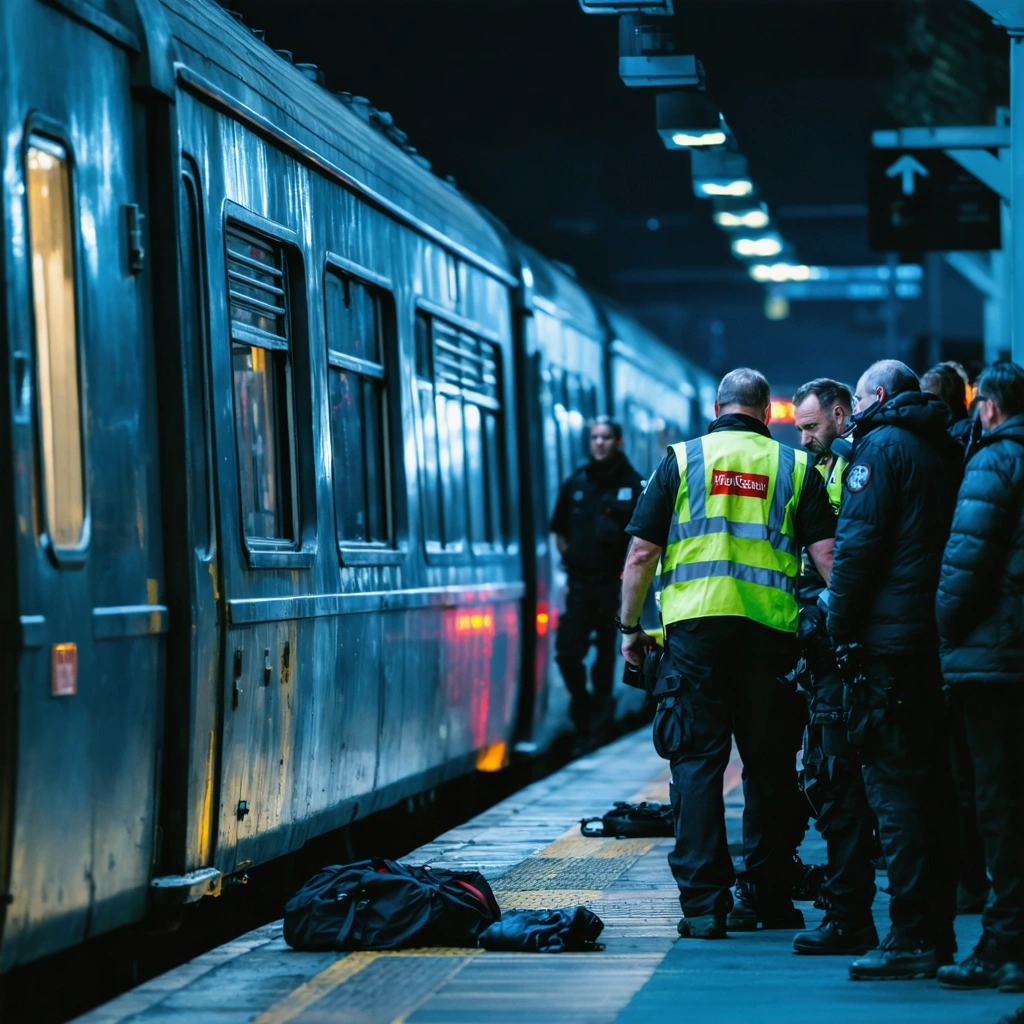The recent tragedy of a girl stabbed to death on a train in North Carolina has sent shockwaves through the community and beyond. This horrific act of violence raises critical questions about public safety, mental health, and systemic failures that allow such tragedies to occur. The victim, Iryna Zarutska, a Ukrainian refugee, was brutally murdered in what appears to be an unprovoked attack. The very notion that someone could feel unsafe on a public transport system is an indictment of our societal priorities.
What Happened on That Fateful Day
On a seemingly ordinary day in Charlotte, North Carolina, the light rail became the scene of a brutal murder. Iryna Zarutska, a young woman who had fled her war-torn country in search of safety, met a tragic fate when she was stabbed to death. Reports indicate that the suspect, who has been arrested, made chilling admissions, claiming, "I got that white girl." This statement not only reveals the suspect's apparent lack of remorse but also hints at a disturbing undercurrent of racial and societal tensions.
The Wider Implications of This Violence
The stabbing of Iryna Zarutska is not merely an isolated incident; it reflects a broader crisis of safety in public spaces. As people commute daily, the fear of violence lurks in the back of their minds. How many more lives must be lost before we confront the reality of rising violence in our cities? We must consider:
- What are we doing to ensure the safety of vulnerable populations, such as refugees and immigrants?
- How can our public transport systems evolve to prevent these tragedies?
- What role does mental health play in such violent acts, and how can we address it?
The Role of Leadership and Policy
In response to this tragedy, North Carolina Governor Josh Stein expressed his outrage, stating he was "appalled" by the murder. But outrage is not enough. It is incumbent upon our leaders to take actionable steps to improve public safety. The time for hollow statements is over; we need policies that ensure the protection of all citizens, especially those who are most vulnerable.
Calls for Action
Following the incident, community leaders and activists have called for:
- Increased security measures on public transport systems, including more surveillance and police presence.
- Better mental health services and intervention programs to address the underlying causes of violence.
- Community outreach programs to foster understanding and integration of immigrant populations.
It is essential to remember that every life lost is a reminder of our collective failure to protect our communities. The stabbing of a girl on a train should serve as a rallying cry for change, not just a moment of mourning.
Seeking Justice for Iryna Zarutska
The legal proceedings against the accused murderer must be transparent and swift. Justice must not only be served but also seen to be served. The community deserves answers—why did this happen, and what can we do to prevent it in the future?
The Importance of Community Engagement
As citizens, we cannot afford to remain passive. We must engage in conversations about safety and justice, demanding accountability from our leaders. The support for Iryna's family should extend beyond social media hashtags; it should manifest in tangible action. Initiatives like GoFundMe campaigns provide immediate aid, but we must also push for long-term solutions.

This tragic event is a clarion call for society to step up and address the issues of safety, mental health, and community support. We must not shy away from discussing these uncomfortable truths and advocating for change.
Conclusion: What Can We Do Moving Forward?
The stabbing of Iryna Zarutska is a stark reminder of the vulnerabilities we face in our daily lives. As we reflect on her tragic death, let us ask ourselves: what can we do to ensure that no one else suffers the same fate? It is time for collective action, for community engagement, and for a deep reevaluation of how we protect our citizens.
Do you agree this policy is a disaster, or do you see it differently? Speak up.

💬 Join the Conversation
Leave a Comment
Comments (0)
No comments yet. Be the first to share your thoughts!